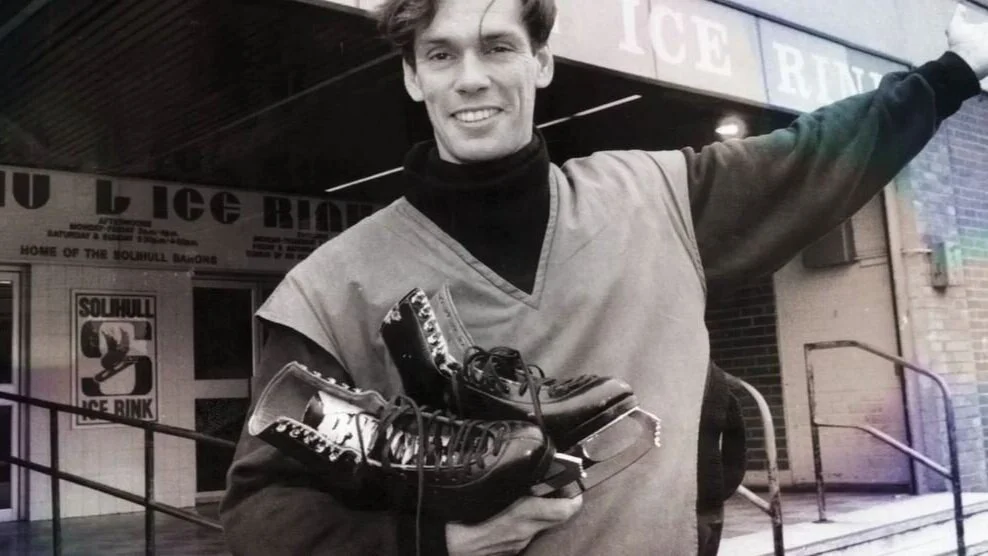The Ice King
John Curry's life and art intertwine in this portrait of a remarkable man.
This very welcome documentary feature is a biopic about Britain's most notable figure skater, John Curry, who was born in Birmingham in 1949. His great year was 1976 when he became Olympic and World Champion and was, in addition, voted BBC Sports Personality of the Year. This might suggest that The Ice King would be a film of decidedly specialised interest requiring an audience devoted to championship skating, but in the event its appeal is much wider and that for a number of reasons.
James Erskine's film tells Curry's life story in chronological order (he died in 1994). It is particularly successful in clarifying the skater's desire to create a skating style that went beyond pyrotechnics and into the expression of emotions, something akin to dancing on ice but in the process developing aspects in which the setting could yield even more than ballet. It was an ambition largely realised and one which ironically grew out of the fact that at the age of eleven he was drawn to dance but found his wishes in that respect thwarted by the hostility of his father. The latter refused to countenance an interest in what he regarded as an effeminate art form and approved instead the idea of skating, which he categorised as a sport. An additional irony lay in the fact that, although the father had no idea of it, his son was indeed gay.
Blending readings from letters, comments from friends and colleagues and substantial old footage (both action shots and interviews), The Ice King tells a fascinating story not only because of Curry's hugely individual artistic endeavours but also on account of the fact that it is the tale of a gay man who had to deal with his sexuality while in the limelight. As such, the story is one of both triumph and tragedy (Curry would die of Aids at the age of 44). The film's narrative of events could hardly be better, but it isn't quite so successful in explaining the man. Curry suffered from depression and the film suggests that this was connected with his unsuccessful bid to find not just a lover but a life's companion. That may have played a significant part together with being born at a time when social attitudes meant that being gay often resulted in an absence of self-worth. But there is nothing in the film to explain passing references to Curry being not just a perfectionist but also an arrogant man of whom some of his colleagues were in fear. One feels that there are depths here that, perhaps understandably, the film fails to reach. Even so, this is a very gripping work which will fascinate most audiences and which deals sensitively both with the man and with his art.
MANSEL STIMPSON
Featuring Johnny Weir, Cathy Foulkes, David Spungen, Heinz Wirz, Lorna Brown, Meg Streeter Lauck.
Dir James Erskine, Pro James Erskine and Victoria Gregory, Screenplay Jame Erskine, based on the book Alone: The Triumph and Tragedy of John Curry by Bill Jones, Ph Paul Williams, Ed Stephen Parkinson.
New Black Films/Dogwoof/BBC Storyville-Dogwoof.
89 mins. UK. 2018. Rel: 23 February 2018. Cert. 12A.


